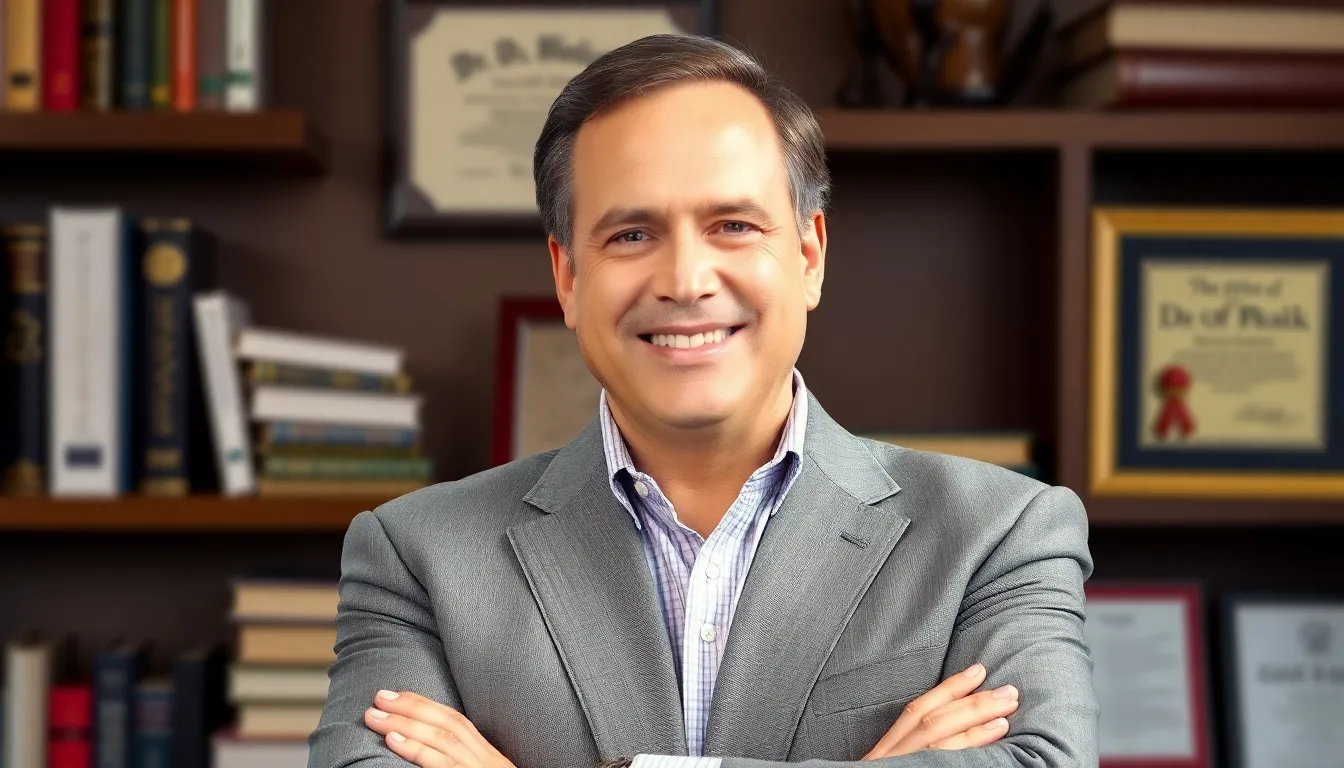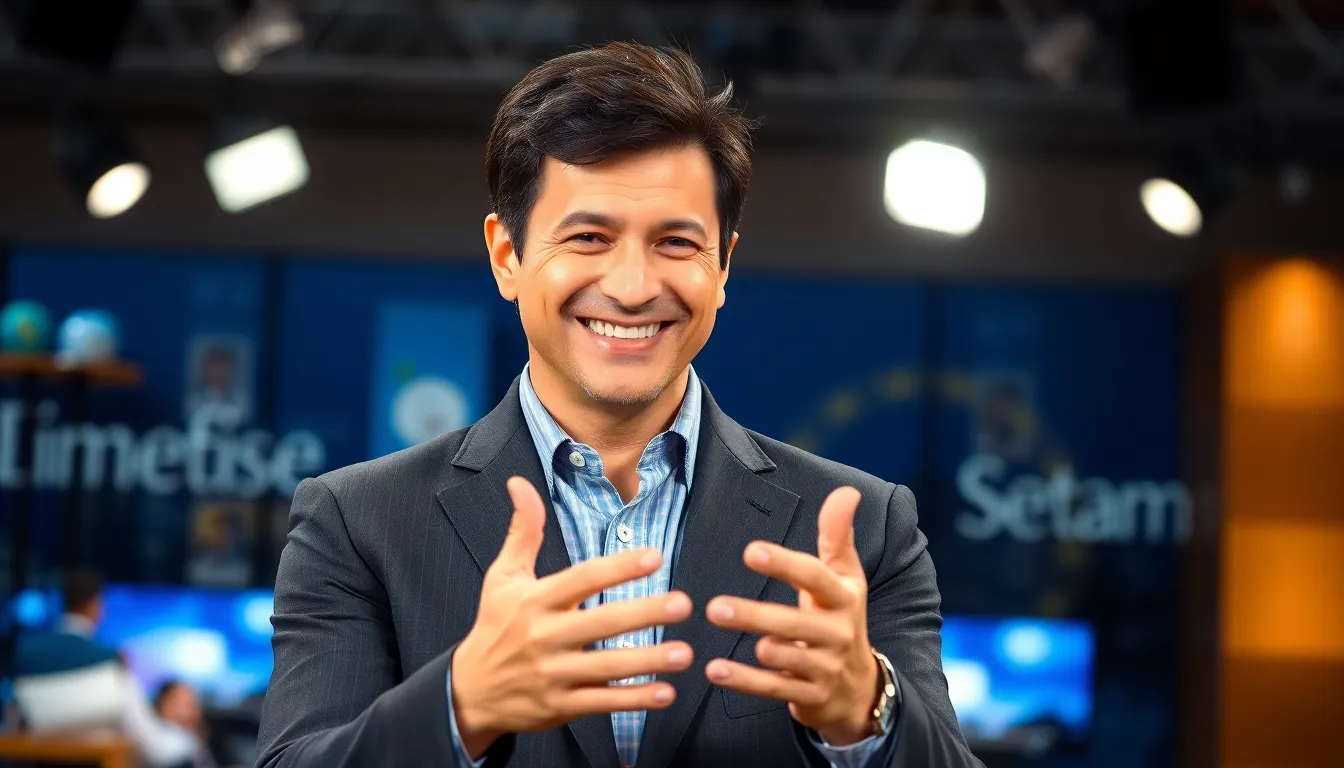Table of Contents
ToggleDr. Phil McGraw is a household name, known for his no-nonsense advice and larger-than-life personality. But before you take his words to heart, you might wonder: does this television guru actually hold a PhD? It’s a question that’s sparked debates and curiosity among fans and skeptics alike.
Overview of Dr. Phil
Dr. Phil McGraw, often simply called Dr. Phil, is a prominent figure in the world of television. Known for his direct approach to mental health and personal issues, he gained fame through his talk show, “Dr. Phil,” debuting in 2002. This show features real-life stories and offers psychological insights.
Education plays a significant role in his credibility as a mental health professional. He earned a Doctorate in Psychology from the University of North Texas in 1979. It’s essential to clarify that he never completed the licensing requirements for practicing psychology, though many people still recognize his expertise.
His early career included work with Oprah Winfrey, where he initially rose to popularity. This collaboration shaped his public persona and paved the way for his independent success. In addition to his television presence, he authored several books addressing psychological topics, further emphasizing his role as a self-help authority.
Critics often discuss the validity of his advice, questioning his lack of a licensed practice. Supporters argue that the experience he gained through years of counseling and media exposure compensates for this. Diverse audiences appreciate his straightforward, no-nonsense style, which appeals to individuals seeking guidance on various life challenges.
In discussions surrounding his qualifications, the focus typically centers on his ability to connect with viewers. Emphasizing practical advice allows him to resonate with a large demographic of fans. As a result, his brand extends beyond just television, influencing various aspects of popular culture and self-help movements.
Education Background

Dr. Phil McGraw has a notable education history that contributes to his public persona. His academic journey began in high school, laying the groundwork for his future endeavors.
Early Education
Dr. Phil attended Shawnee Mission North High School in Overland Park, Kansas. He graduated in 1968, displaying early leadership qualities. After high school, he enrolled at the University of Kansas, where he initially focused on pre-law. A shift in interests led him to switch his major to psychology, highlighting his evolving commitment to understanding human behavior.
Higher Education
In 1974, Dr. Phil received a bachelor’s degree in psychology from the University of North Texas. He completed his master’s degree in 1976 and earned his Doctorate in Psychology in 1979. Despite holding a doctorate, Dr. Phil did not pursue state licensure to practice, which has sparked discussions regarding his qualifications. His background in psychology, however, complements his expertise in counseling and media, shaping his approach on television.
The Debate on Dr. Phil’s Credentials
Dr. Phil McGraw’s qualifications often spark lively discussions among fans and critics alike. His academic achievements provide a foundation for evaluation.
Public Perception
Public opinion on Dr. Phil’s credentials varies significantly. Supporters argue his practical experience in counseling and media outweighs the absence of a license. Many viewers appreciate his straightforward approach, perceiving him as a relatable figure. Critics, however, focus on his lack of state licensure, questioning the credibility of his advice. This division in perception highlights the complexity surrounding his reputation. His followers argue that the impact of his guidance can validate his expertise. As a prominent figure, he continues to influence how people view self-help and psychology.
Media Representation
Media representation of Dr. Phil plays a crucial role in shaping his public image. His talk show, which debuted in 2002, showcases real-life stories, drawing audiences to his unique style. Viewers often see him as an authoritative figure, as he provides insights into personal challenges. Coverage in various outlets reinforces his status as a self-help authority, despite debates on qualifications. The collaboration with Oprah Winfrey further amplified his visibility in the media landscape. Positive portrayals on platforms like talk shows and interviews emphasize his role as a counselor. Consequently, media representation contributes significantly to the ongoing debate about his credentials.
Dr. Phil’s Career
Dr. Phil’s career showcases a blend of psychological insights and media presence. His journey to fame began with the launch of his television show “Dr. Phil” in 2002, which quickly gained popularity.
Television Show Launch
The “Dr. Phil” show started as a platform for addressing real-life issues. It featured guests sharing personal stories, which resonated with viewers. Dr. Phil’s engaging demeanor contributed to the show’s success, attracting millions of people. Episodes often centered on relationships, mental health, and emotional struggles. Each episode aimed to provide practical advice and actionable steps. Popular segments included interventions and family counseling, which highlighted pressing societal issues. Through the years, the program maintained high ratings, solidifying Dr. Phil’s influence in the self-help genre.
Professional Expertise
Dr. Phil’s professional background emphasizes his extensive knowledge in psychology. After earning a Doctorate in Psychology, he focused on practical applications in counseling. He gained experience by working as a clinical psychologist before transitioning to media. Although he never pursued state licensure, he relied on his academic achievements and practical experience to guide his approach. Public speaking, consulting, and writing books extended his career beyond television. His expertise covers a range of psychological topics from addiction to family dynamics. Many viewers appreciate his candid advice, often highlighting its real-world relevance.
Dr. Phil’s journey through psychology and media showcases a unique blend of knowledge and experience. While he holds a Doctorate in Psychology from the University of North Texas, his decision not to pursue state licensure has sparked debate about his qualifications. Supporters appreciate his practical advice and relatable approach, while critics raise valid concerns regarding his lack of formal credentials.
Regardless of differing opinions, Dr. Phil has undeniably made a significant impact in the self-help arena. His ability to connect with audiences and address real-life issues continues to resonate, solidifying his status as a prominent figure in popular culture. The discussions surrounding his qualifications will likely persist, but his influence in the realm of psychology and media remains strong.




